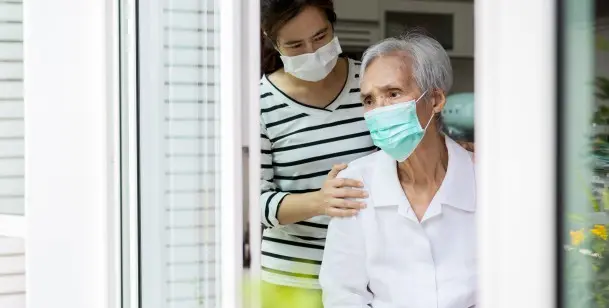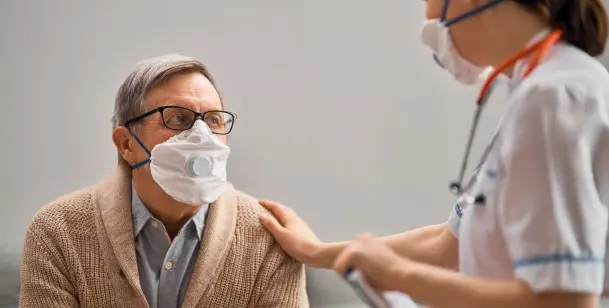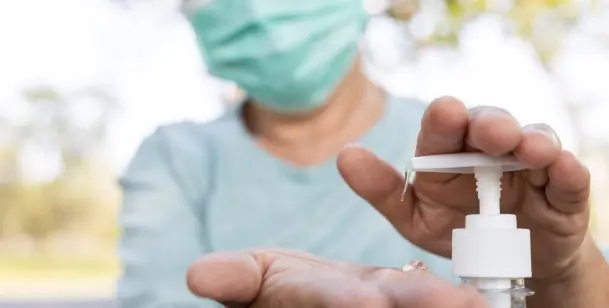As the number of Coronavirus cases continues to rise, the lack of concrete information on who exactly is most at risk is a source of uncertainty for many. And because people with pre-existing health conditions seem to be more at risk, there’s little wonder that people have surmised that the elderly are more likely to contract the virus. Keep reading as we debunk myths and give you some facts about coronavirus and the elderly.

What Constitutes an “At-Risk” Person?
Because the coronavirus disease is an illness that attacks the respiratory system, it can cause serious problems for anyone that catches the virus. In light of this, someone with a pre-existing condition, chronic illnesses, or otherwise compromised immune system is, particularly at risk. Check out this list of conditions from the Center for Disease Control (CDC) that may put you or a family member in the “at-risk” category:
- Chronic kidney disease
- COPD (chronic obstructive pulmonary disease)
- Immunocompromised state (weakened immune system from solid organ transplant
- Obesity
- Serious heart conditions (Heart failure, coronary artery disease, cardiomyopathies)
- Sickle cell disease
- Type 2 diabetes
- Cancer
Regardless of whether you have a pre-existing condition or not, you should take care to avoid contracting the virus. But if you or a family member is considered “at-risk,” it is even more important that you take extra precautions.

Are Older People More Likely to Contract Coronavirus?
To be clear, by no means is an elderly person more likely to catch the virus or fair poorly from it in comparison to people of different age demographics. There are many more factors at play that contribute to making that deduction. In fact, some studies have shown that many young adult habits like smoking, vaping, or excessive drinking are all major factors when it comes to how well you will handle the virus should you become sick. However, it is worth noting that older adults and people between the ages of 50 and 65 are more likely to have a pre-existing condition and probably have a higher percentage of “at-risk” people.
Another major contributing factor to the spread of this virus is proximity to other people. The virus is highly contagious and as a result, those living or spending large amounts of time in close quarters with big groups are far more likely to become infected. Since the outbreak of the virus, we have seen that assisted living, nursing home, and care facilities have been hotbeds for the spread of the virus. Whether this is more due to lack of social distancing and ineffective quarantining or age remains to be seen. Still, the same could be said for children in schools, young adults living in dorms, or people that work in heavily populated office settings.

What You Can do to Prevent Infection?
The best line of defense against the virus is to not put yourself in a position to contract it in the first place. If you are able to work from home, do so. Staying home and social distancing is the only true way to avoid infection. The country is reopening steadily but don’t be fooled—it is by no means safe to go out without potentially getting the virus. You should also be making a point to wash your hands frequently with soap and water. It may seem like a silly or ineffectual step, but as of right now there is no better way to protect yourself.
Visit Village Emergency Centers Today
The coronavirus situation in this country is reaching its boiling point, and we at Village Emergency Centers want you to have access to all the testing, care, and information that you need to stay safe and healthy. If you are experiencing symptoms associated with COVID-19 like fever, cough, or shortness of breath, isolate yourself and get tested as soon as possible. If you want to learn more about coronavirus and the elderly, give us a call! Visit a Village Emergency Center near you for affordable testing with little to no wait time. Now is not the time to wait. Contact us today or visit one of our locations, Jersey Village or League City in the Greater Houston area.
